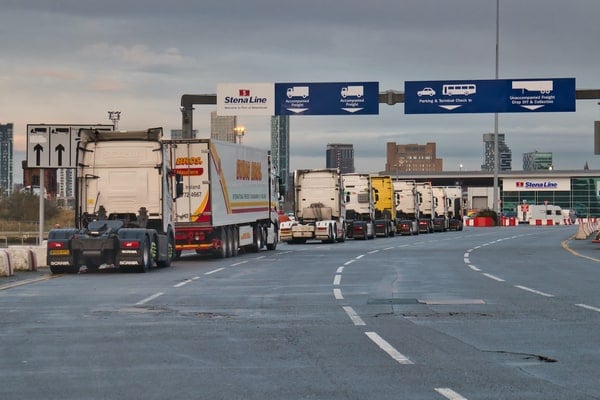The government says it has no plans to offer EU lorry drivers temporary visas, despite calls from both the retail and logistics sector who warn of a growing shortage of drivers. Instead, it says, retailers and logistics companies should invest in its domestic workforce.
Logistics UK on Friday called for 10,000 temporary visas to be issued for EU drivers. On Sunday it joined forces with the British Retail Consortium in writing to the Department for Business, Energy and Industrial Strategy (BEIS) to repeat its call for visas – previously turned down by the government – to be approved.
The two also called for lorry driver testing capacity to be increased at the Driver and Vehicles Standards Agency and for the government to allow HGV training to be funded through the National Skills Fund and the Apprenticeship Levy.
Today a government spokesperson said in a statement: “The British people repeatedly voted to end free movement and take back control of our immigration system and employers should invest in our domestic workforce instead of relying on labour from abroad.
“We recently announced a package of measures to help tackle the HGV driver shortage, including plans to streamline the process for new drivers to gain their HGV licence and to increase the number of tests able to be conducted. We have also temporarily relaxed drivers’ hours rules to allow HGV drivers to make slightly longer journeys, but these must only be used where necessary and must not compromise driver safety.”
On Friday Logistics UK issued analysis of the second quarter ONS Labour Force Survey finding that of 14,000 EU HGV drivers who left UK driving jobs in the year to June 2020, only 600 had returned by the end of June.
On Sunday, David Wells, chief executive of Logistics UK, wrote in a joint letter with Helen Dickinson, chief executive of the BRC, to Kwasi Kwarteng, secretary of state at BEIS. They said that the retail and logistics industries are taking proactive measures to address the driver shortage challenge – including increasing pay rates, offering bonuses, and implementing internal training schemes – but the government must take immediate action to support supply chains.
The letter says: “The current shortfall of around 90,000 HGV drivers is placing unsustainable pressure on retailers and their supply chains. While there was a shortage of HGV drivers prior to the Covid-19 pandemic and Brexit, these two events have exacerbated the situation; the pandemic halted driver training and testing for more than 12 months, while an estimated 25,000 EU drivers returned home during the pandemic and following the end of the transition period.”
It adds: “Logistics UK and BRC need BEIS to work with us to ensure the government provides a clear road map and tangible support for industry to ensure that our stores can continue to provide what the country needs every day.”









